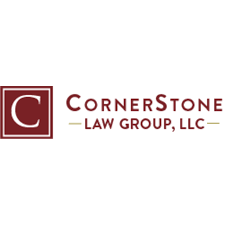
Adoption offers a unique opportunity for individuals and families to welcome a new member into their home and provide a stable, loving environment for a child. In Kansas, adoption is a deeply rewarding but complex legal process that involves a number of steps and legal requirements to ensure that the best interests of the child are prioritized.
Whether you are adopting through an agency, privately, or within your own family, understanding the intricacies of Kansas adoption laws is crucial to making the process as smooth and successful as possible.
Types of Adoption in Kansas
Kansas law recognizes several different types of adoption, each with its own set of procedures and legal requirements. The most common forms of adoption in Kansas include:
- Agency Adoptions: In this process, a state-licensed adoption agency works with the prospective adoptive parents to match them with a child. The agency typically handles all aspects of the adoption, including background checks, home studies, and post-placement visits. Agency adoptions are common for families adopting infants or children from foster care.
- Private Adoptions: Also known as independent adoptions, private adoptions occur when the adoptive parents work directly with the birth parents without the involvement of an adoption agency. In these cases, both parties negotiate the terms of the adoption and work with legal representation to finalize the process.
- Step-Parent Adoptions: When a step-parent wishes to legally adopt their spouse’s child, the process is somewhat simpler than other forms of adoption. However, the legal rights of the non-custodial biological parent must be addressed, either through consent or termination of parental rights.
- Relative (Kinship) Adoptions: This type of adoption occurs when a relative, such as a grandparent, aunt, or uncle, adopts a child within the family. In some cases, kinship adoptions arise from a desire to keep a child within their biological family when the birth parents are unable to provide care.
- Foster Care Adoptions: Many children in Kansas are placed in foster care temporarily, but some are available for adoption if reunification with their birth families is not possible. Foster care adoptions often involve children who have been removed from their homes due to abuse or neglect, and the process is overseen by the Kansas Department for Children and Families (DCF).
- International Adoptions: Kansas residents can also adopt children from other countries. International adoptions involve additional complexities, including compliance with the laws of the child’s country of origin, as well as U.S. immigration laws.
The Legal Process of Adoption in Kansas
The adoption process in Kansas can be intricate, requiring careful compliance with state and federal laws. Here are the key steps that prospective adoptive parents must follow:
- Filing the Petition for Adoption: The adoption process formally begins when the prospective parents file a petition for adoption with the appropriate Kansas district court. The petition includes essential details about the adoptive parents, the child being adopted, and the type of adoption being pursued.
- Home Study: For most types of adoptions in Kansas, a home study is required. The home study involves an assessment of the prospective adoptive family’s living situation, financial stability, and overall readiness to provide a safe and nurturing environment for the child. This step typically includes interviews with the family, background checks, and home visits.
- Consent of the Biological Parents: In most cases, the birth parents must consent to the adoption. Consent must be given voluntarily and without coercion, and it cannot be given until after the child is born. In certain situations, consent may not be required, such as when the parental rights of the birth parents have been terminated due to neglect, abandonment, or unfitness.
- Termination of Parental Rights: If the biological parents do not consent to the adoption, it may be necessary to terminate their parental rights. This is a legal process that requires a court finding that the birth parents are unfit or that termination is in the best interest of the child. Grounds for termination include abandonment, failure to support, or endangering the welfare of the child.
- Placement of the Child: Once the legal formalities are in place, the child may be placed with the adoptive parents. In cases of foster care or agency adoptions, placement may occur before the adoption is finalized, with the family providing care and support during this transitional period.
- Finalization Hearing: After the necessary requirements are met, the court will schedule a finalization hearing. During this hearing, a judge will review the adoption petition, home study report, and any other relevant documents to ensure that the adoption is in the child’s best interests. If everything is in order, the judge will issue an adoption decree, legally establishing the adoptive parents as the child’s permanent guardians.
Open vs. Closed Adoptions in Kansas
Adoptions in Kansas can be either open or closed, depending on the preferences of the birth parents and adoptive family.
- Open Adoptions: In an open adoption, the birth parents and adoptive family agree to maintain some level of contact after the adoption is finalized. This may include sharing photos, letters, or even arranging visits. Open adoptions are often chosen to give the child a sense of identity and connection to their biological family.
- Closed Adoptions: In a closed adoption, no identifying information is shared between the birth parents and the adoptive family. Once the adoption is finalized, all records are sealed, and there is no ongoing contact between the parties. Closed adoptions were more common in the past, but many families today prefer the flexibility of open adoptions.
Legal Rights and Responsibilities of Birth Parents
Birth parents in Kansas have specific rights during the adoption process, and it is important that their consent is obtained lawfully. Kansas law mandates that the birth parents must be fully informed about their rights before consenting to an adoption, including their right to legal counsel.
In some cases, a birth parent may withdraw consent within a certain time frame after giving it. This right varies depending on the circumstances of the case and the type of adoption. However, once parental rights are legally terminated, the birth parents lose any legal standing regarding the child.
Interstate and International Adoptions: Additional Considerations
When adopting a child from another state or country, additional legal steps must be taken to comply with both Kansas laws and the laws of the other jurisdiction. For interstate adoptions, the Interstate Compact on the Placement of Children (ICPC) governs the transfer of children between states and ensures that all parties follow the proper procedures.
For international adoptions, prospective adoptive parents must comply with the laws of the child’s country of origin, as well as U.S. immigration laws. The adoption must be finalized in the foreign country before the child can enter the United States, and the adoptive parents must apply for a visa to bring the child home.
Adoption Costs in Kansas
The cost of adopting a child in Kansas can vary widely depending on the type of adoption and the circumstances involved. Common expenses include:
- Agency Fees: If you are adopting through an agency, fees typically cover the costs of matching you with a child, conducting the home study, and providing post-placement services.
- Legal Fees: Adoptions require the assistance of an attorney to ensure that all legal requirements are met. Attorney fees may include filing the adoption petition, representing you at the finalization hearing, and handling any necessary parental rights termination proceedings.
- Medical and Living Expenses: In some private adoptions, the adoptive parents may agree to cover certain living and medical expenses for the birth mother during her pregnancy. These expenses must be carefully documented and approved by the court.
For families adopting a child from foster care, the costs are generally lower, as the state may cover certain expenses. Additionally, adoptive parents may be eligible for a federal adoption tax credit to offset the financial burden of the adoption process.
Adoption Assistance and Subsidies for Foster Care Adoptions
Kansas provides financial assistance to adoptive families who adopt children from the state’s foster care system. These subsidies are designed to help families cover the costs associated with caring for a child with special needs, including:
- Monthly Payments: Families may receive monthly financial assistance to cover the ongoing care of the child.
- Medical Assistance: Children adopted from foster care may be eligible for Medicaid to cover their medical and dental needs.
- Post-Adoption Support: Kansas offers resources and services to adoptive families, including counseling, support groups, and access to post-adoption specialists who can assist with any challenges that arise.
Adoption Records and Confidentiality in Kansas
In Kansas, adoption records are generally sealed once the adoption is finalized. This means that the records are not accessible to the public, and identifying information about the birth parents and adoptive family remains confidential.
However, in some cases, adoption records can be accessed by the adopted person, birth parents, or adoptive parents through a court order. Kansas law allows adult adoptees to request their original birth certificate if they meet certain criteria, including obtaining consent from the birth parents or a court order.
